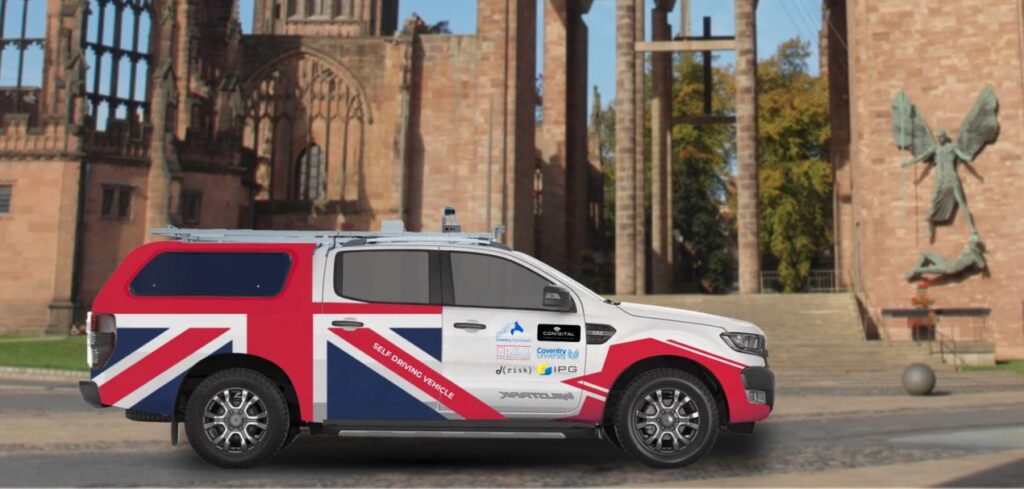A project led by Conigital and Coventry University is to trial new self-driving technology on the streets of Coventry in the UK. The Multi-Area Connected Automated Mobility (MACAM) project is expected to cost approximately £15.2m (US$18.4m) and will see self-driving technology navigating around the city center and the National Exhibition Centre (NEC) in Birmingham in 18 months’ time.
Several other organizations are involved with the project, including Coventry City Council, Solihull Metropolitan Borough Council, Warwick Manufacturing Group, dRisk, IPG Automotive UK, Direct Line Group (insurance) and the NEC.
Coventry University will be responsible for developing strategies that provide safe, secure and efficient operation of self-driving vehicles in several locations by remote operators in a control room, using a 5G-based remote monitoring and tele-operation (RMTO) service.
The university will also operate an internal mail service across its city-center locations using purpose-built self-driving light vans. Furthermore, Coventry University will leverage its knowledge in cybersecurity to ensure that the vehicle functions safely and reliably. To begin with, a driver will sit in the vehicle but the university plans to operate unmanned vehicles in the future with monitoring being carried out remotely. The aim is to show that the self-driving technology is ready to be put into commercial use.
“We were chosen to take part in this project because it is recognized that we have expertise in studying human factors and in cybersecurity in the field of self-driving vehicles,” said Kevin Vincent, director of Coventry University’s Centre for Connected and Autonomous Automotive Research. “Our work on this is all about demonstrating the technology will work in real-world settings and providing that evidence for those who want to further develop self-driving technology. Coventry was the site of some of the UK’s early self-driving trials and we have a history of running safe road trials.”
“There is a defined legal driver of any vehicle but what we’re doing is taking that person out from behind a steering wheel and putting them in a control room,” commented Professor Stewart Birrell, professor of human factors for future transport at Coventry University. “We want to explore the human factors involved and how control of a vehicle is passed over to an operator at specific points in a journey, for example where there may be a particularly difficult section of a trip that needs negotiating. We want to show this technology works within real-world settings, not just on a test track.”
The MACAM project is one of several self-driving technology projects to have recently been awarded a share of £81m (US$98m) in funding from the UK government and private industry as part of the Centre for Connected and Autonomous Vehicles connected and automated mobility program.


